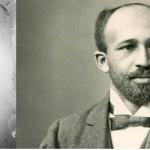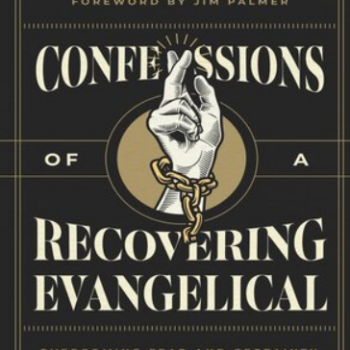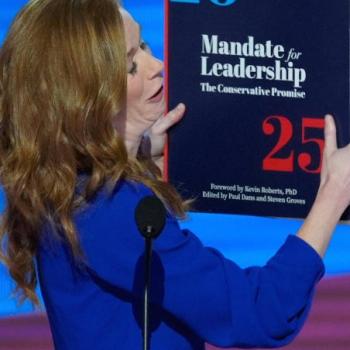The Art of Detachment
I have been practicing the art of detachment from religious beliefs for the past 15 years or so. After 40 years of trying to reduce my identity and so-called faith down to a set of beliefs and getting them just right, I have detached from that dead-end and death producing exercise. The result has been renewing, freeing and refreshing…in other words, I feel alive.

So now that I have detached from my religious beliefs I am not defined by my statement of faith or creed. I have rejected the notion that my eternal destination is determined by my finite, subjective, mental, religious beliefs. In other words, I reject the idea that if I don’t get the particular theological minutiae correct, then I am doomed to an eternal torture of hell.
Trying To Get Doctrine Right
But I was taught as a young evangelical that doctrine and correct belief was essential and foundational, and you had to get it right. So I spent years reading the bible, commentaries, reading Francis Schaeffer, Tozier and other celebrity theologians, and tried to develop the most exquisite, eloquent and elegant theology that was air tight and exactly on target.
And I taught it to others, mostly younger students in Christian Schools that were sent there by their anxiety ridden parents who worried about secular humanism that was being taught in the public school system. They wanted their little miniature, clone like evangelical kids to be indoctrinated by a definitive and absolute “Christian world and life view.” It was a belief system that had nothing to do with the essence of their human hearts. It was indoctrination so that their kids would believe the right things…the right doctrine…the right sexual orientation and the correct racial hierarchy.
What My Students Really Wanted from Me
But here is what I found out from those children of the anxious evangelical parents that spent their precious thousands of dollars for a “Christian Education.” Those kids didn’t care a rat’s behind about right theology or a “biblical world view.” They only cared about one thing, and one thing only.…do you love me and accept me as I am? Is my humanity important and valuable to you? Am I a real, essential and important human being despite who I love or who I want to love? It had nothing to do with correct beliefs. The questions these kids had was …can you connect with me human to human, person to person…can you LOVE me? It had nothing to do with “right belief.”
Do I Still Believe in God?
On occasion someone will still ask me what I believe about something to do with religion…such as, “do you believe in God?” For many years I enjoyed that question because I was able to dump my air-tight beliefs onto the unsuspecting person. I had scripture passages ready to “prove” what God was like and how we should bow in utter subservience to a God that somehow saw fit to allow me, an abject sinner and unworthy individual to live another day. Of course, my purpose was to “win” them over to my view, so they can think of themselves so hideous and ugly as God thinks they are, so they’ll be able to be “saved” like I am.
So, what do I say to the casual inquirer that happens to ask me now, “do you believe in God?” My response is nonchalant. After a moment of apparent deep thought and scratching my gray bearded chin, my first comment is…”that is a pretty good question now, isn’t it? What do you think?” I’m not deliberately trying to be a smart-ass, well, not entirely. I just find the question only mildly interesting, but ultimately irrelevant. It is irrelevant because it has nothing to do with my humanity and humanness.
It isn’t that I’m an atheist. I mean I don’t think I can any better prove that God doesn’t exist as God does exist. So, it isn’t something that I could always sustain absolutely as true or applicable to all people because there is no way to “prove” this question definitively either way. So, to me the question is irrelevant. In other words, there is no answer. It is a mystery. And I do love mystery.
My Beliefs Do Not Affect My Humanity
And here is the great thing I have found about detachment from beliefs. I don’t have to be right about ultimate reality or salvation. It doesn’t matter what I believe, my belief or non-belief in God doesn’t affect my humanity in any way, shape or form. I mean the kind of person I am or at least want to be isn’t dependent on a belief about God or anything else.
Here is how I know this is true:
- I have met atheists that are genuinely loving and caring people and their disposition is not dependent on whether they believe in God. They love the people around them because they connect to their humanity.
- I have met agnostics that aren’t quite certain about God’s existence, but they are loving and caring people because they have connected to their core humanity.
- The atheist and the agnostic aren’t loving because of their non-belief or skepticism about God, but because of their connection to their humanness.
- I have met Jews and Muslims that are deeply caring and loving people who believe deeply in their God. But their overflowing love comes from the well of their humanity, not some esoteric belief system in Jehovah or Allah.
- I have met some Christians that love and would sacrifice their lives for even a stranger. But it isn’t because of their belief in God. It is because of their ultimate connection to their own human core and consciousness.
The Power of Humanness & Connection
A “belief” doesn’t give a human being the motive to act and love the “other,” but their humanness does. It is the one thing we all have in common. The atheist, agnostic, Jew, Muslim, Christian all can exhibit humanness and loving and kindness and caring behavior to all people. Their beliefs do not impact that behavior. That is the important point about detaching from one’s own beliefs. Your humanity and connection to all people will continue regardless of what you believe, in fact, I have discovered that the beliefs can block my communication and connection to my true Self and consequently to others. Beliefs are connected to my ego, so protecting and proving my beliefs to be correct is designed to protect that ego. It is my ego that interferes with the connections I need to make to myself and others.
Once we begin to focus on our common humanity as opposed to divisive religious beliefs, we can find out very quickly there is no “us v. them” and there are no boundaries between us. The past 15 years or more have been liberating to be free of the confines and the self-imposed walls that were built on the foundation of religious beliefs. Dismantling them takes time…today the word for it is “deconstruction.” I guess that is as good a word as any to describe what I and millions of others are doing. Yes, this is a wide-spread phenomenon.
But, be assured, our ego craves stability, predictability, and certainty to feel secure. It hates the notion of the unknown and will fight to control its environment with everything it has. That is why so many people still want to pin you down about your beliefs. They want to be able to prove you wrong or convince you that eternal damnation awaits your sorry soul for having the wrong beliefs. I find it all boorish. But occasionally I still get questioned as if on a witness stand. Who is Jesus Christ? Is he the son of god or not? Was there a virgin birth and do you believe in heaven and hell? These questions seem so trite and irrelevant to the bigger issues. Do I love everyone? Am I working to make our world a better place? Am I a true ally to the marginalized and those victimized by the powerful in our society? Those other questions? Meh!














